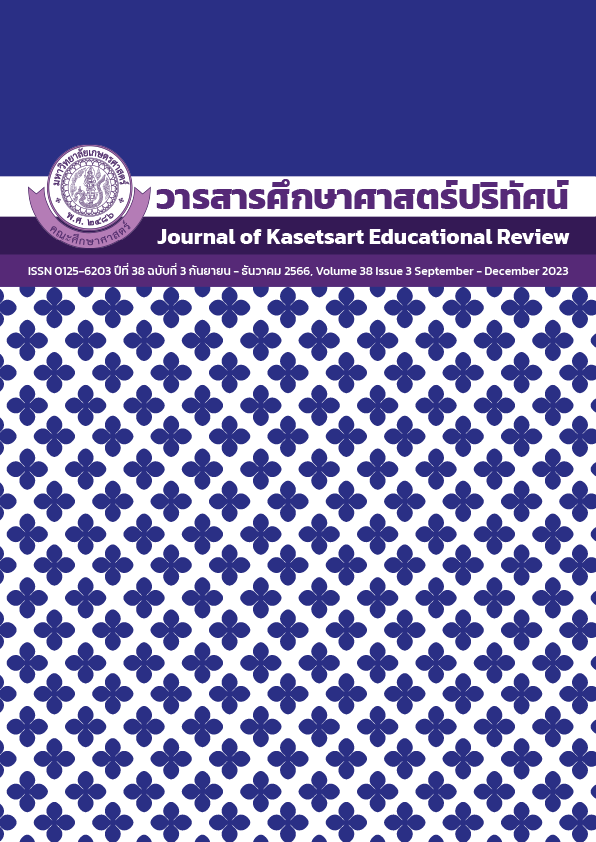แนวทางการพัฒนาทักษะการคิดวิเคราะห์เพื่อเสริมสร้างผู้ประกอบการในยุคดิจิทัล
คำสำคัญ:
แนวทางการพัฒนา ทักษะการคิดวิเคราะห์ ผู้ประกอบการในยุคดิจิทัลบทคัดย่อ
บทความวิจัยนี้มีวัตถุประสงค์เพื่อ 1) ศึกษาปัญหาเกี่ยวกับทักษะการคิดวิเคราะห์ของผู้ประกอบการในยุคดิจิทัล และ 2) นำเสนอแนวทางการพัฒนาทักษะการคิดวิเคราะห์เพื่อเสริมสร้างผู้ประกอบการในยุคดิจิทัล ในการศึกษาวิจัยครั้งนี้ใช้กระบวนวิธีการวิจัยแบบผสมผสานด้วยวิธีการวิจัยเชิงเอกสาร (Documentary Research) จากแหล่งข้อมูลที่เป็นวิทยานิพนธ์ บทความวิจัย และบทความวิชาการจำนวนทั้งหมด 60 ฉบับด้วยแบบวิเคราะห์เอกสารเกี่ยวกับปัญหาและแนวทาง โดยสถิติที่ใช้เป็นค่าร้อยละ (Percentage) ค่าความถี่ (Frequency) และการวิเคราะห์เนื้อหา (Content Analysis) และวิธีการวิจัยเชิงสำรวจความคิดเห็น (Survey Research) จากผู้เชี่ยวชาญจำนวน 3 คนด้วยแบบประเมินความเหมาะสมของแนวทาง โดยสถิติที่ใช้เป็นค่าเฉลี่ย (Mean) ส่วนเบี่ยงเบนมาตรฐาน (Standard Deviation) และการวิเคราะห์เนื้อหา (Content Analysis) ผลการวิจัยพบว่า ปัญหาเกี่ยวกับทักษะการคิดวิเคราะห์ของผู้ประกอบการในยุคดิจิทัลมี 4 ด้านที่เป็นปัญหาต่อการพัฒนาทักษะการคิดวิเคราะห์ให้กับผู้ประกอบการในยุคดิจิทัล ส่วนแนวทางการพัฒนาทักษะการคิดวิเคราะห์เพื่อเสริมสร้างผู้ประกอบการในยุคดิจิทัลมี 7 ด้านครอบคลุม 25 แนวทางย่อย 3) ความเหมาะสมของแนวทางการพัฒนาที่สอดคล้องและสัมพันธ์กับปัญหาในภาพรวมอยู่ในระดับมากที่สุด ( = 4.85, S.D. 0.19) ผลวิจัยสามารถสรุปได้ว่า แนวทางการพัฒนาทักษะการคิดวิเคราะห์เพื่อเสริมสร้างผู้ประกอบการในยุคดิจิทัลมีความเหมาะสมตามความคิดเห็นของผู้เชี่ยวชาญในการนำไปใช้พัฒนาทักษะการคิดวิเคราะห์ให้ผู้ประกอบการในยุคดิจิทัลมีความพร้อมที่จะประกอบธุรกิจได้อย่างมีประสิทธิภาพและประสิทธิผล โดยเสนอแนะให้นำแนวทางการพัฒนาที่ได้ไปทวนสอบกับแนวปฏิบัติจริงของผู้ประกอบการในยุคดิจิทัลเพื่อยืนยันข้อค้นพบ ต่อยอดแนวทางและนำไปทดลองปฏิบัติจริงในบริบทธุรกิจ นอกจากนี้ยังสามารถเพิ่มฐานข้อมูลไทยอื่นๆ และฐานข้อมูลภาษาอังกฤษเพื่อการสรุปผลวิจัยที่ชัดเจนและครอบคลุมมากยิ่งขึ้น รวมทั้งสามารถสัมภาษณ์ผู้ประกอบการในยุคดิจิทัลและผู้เชี่ยวชาญเพิ่มเติมเพื่อพัฒนาและปรับปรุงแนวทางการพัฒนาให้มีความเหมาะสมและสามารถนำไปใช้ปฏิบัติได้จริงมากยิ่งขึ้น
เอกสารอ้างอิง
Areesoponphichet, S. (2014). Instructional strategy for develop of analytical thinking skills: The concept mapping. E-Journal of Education, 42(3), 194-210. https://so02.tci-thaijo.org/index.php/EDUCU/article/view/26038/22081. [in Thai].
Boontham, W. (2018). Workshop project on Development and Implementation of the Curriculum according to the Results-oriented Education Management Approach. https://phraeoffice.mju.ac.th/wtms_calendarPerson_byMonth.aspx?hID =127662&sd=1%2F3%2F2561&ed=31%2F3%2F2561. [in Thai].
Ewing Marion Kauffman Foundation. (2018). State of Entrepreneurship 2018. Retrieved20March2023,from.https://www.kauffman.org/wpcontent/uploads/2019/02/State_of_Entrepreneurship_2018.pdf
Fuchs, E. R. (2013). Small business failure rates: Choice of definition and the size effect. Journal of Entrepreneurship and Public Policy, 2(2), 181-197.
Huang, I. (2021, September). Making risk management Easier: Development of a diversification decision support system for smallholder Thai rubber farmers [Paper presentation]. HAU Research Conference, China.
Hunsaen. S. (2019). Analytical thinking skills for businessman. E-Journal of Industrial Business Administration, 1(1), 116-128. https://so03.tci-thaijo.org/index.php/iba/article/view/197866/137762. [in Thai].
Malison, S. (2018). The development of analytical thinking abilities by using Marzano's concept in Thai history subjects of students in grade 5. Dhurakij Pundit University, Digital Research Information Center. [in Thai].
Moonkham, S. (2010). Writing a learning management plan that emphasizes thinking. https://m.se-ed.com/Product/Detail/9789749413647. [in Thai].
Nuanraksa, P., & Kulaphen, A. (2022). The development of analytical thinking skills in 5 stepsfor third year students. E- Journal of Buddhist Studies Vanam Dongrak. 9(1), 69-88. https://so06.tcithaijo.org/index.php/Vanam_434/article/view/256767/173046. [in Thai].
Prapaiwatphan, W. (2017). Solve the problem of lack of SWOT analysis skills by analyzing practice methods case study of 2nd year diploma students in marketing at Attawit Commercial Technology College. http://www.atc.ac.th/ATCWeb/FileATC.pdf. [in Thai].
Sookpong, P., & Klaewkrue, N. (2022). Competencies of desirable accountant of enterprises in the digital era. E-Journal Lampang Rajabhat University, 11(1), 146-156. https://so04.tci-thaijo.org/index.php/JLPRU/article/view/255375/175871. [in Thai].
Srichaliaw, T. (2017). Life skills development for prathomsuksa 4-6 students using participatory action research. E-Journal of Graduate Studies, 11(2),61-74.
https://so02.tci-thaijo.org/index.php/JournalGradVRU/article/view/97756/76151. [in Thai].
Sudkaew, S. (2020). A study of the entrepreneur professional skill learning of the office of non-formal education and informal education in the non-formal context of Thailand. [Master’s thesis, Mahidol University]. https://archive.cm.mahidol.ac.th/-bitstream/ 123456789/4015/1/TP%20EM.034%202563.pdf. [in Thai].
Suksawang, S. (2020). Innovative thinking development to develop innovations in the organization. https://agtech4otop.nia.or.th/innovation/.htm. [in Thai].
ดาวน์โหลด
เผยแพร่แล้ว
ฉบับ
ประเภทบทความ
สัญญาอนุญาต
ลิขสิทธิ์ (c) 2023 วารสารศึกษาศาสตร์ปริทัศน์

อนุญาตภายใต้เงื่อนไข Creative Commons Attribution-NonCommercial-NoDerivatives 4.0 International License.
บทความทุกบทความเป็นลิขสิทธิ์ของวารสารคณะศึกษาศาสตร์ มหาวิทยาลัยเกษตรศาสตร์ วิทยาเขตบางเขน
วารสารศึกษาศาสตร์ปริทัศน์ (Kasetsart Educational Review)






